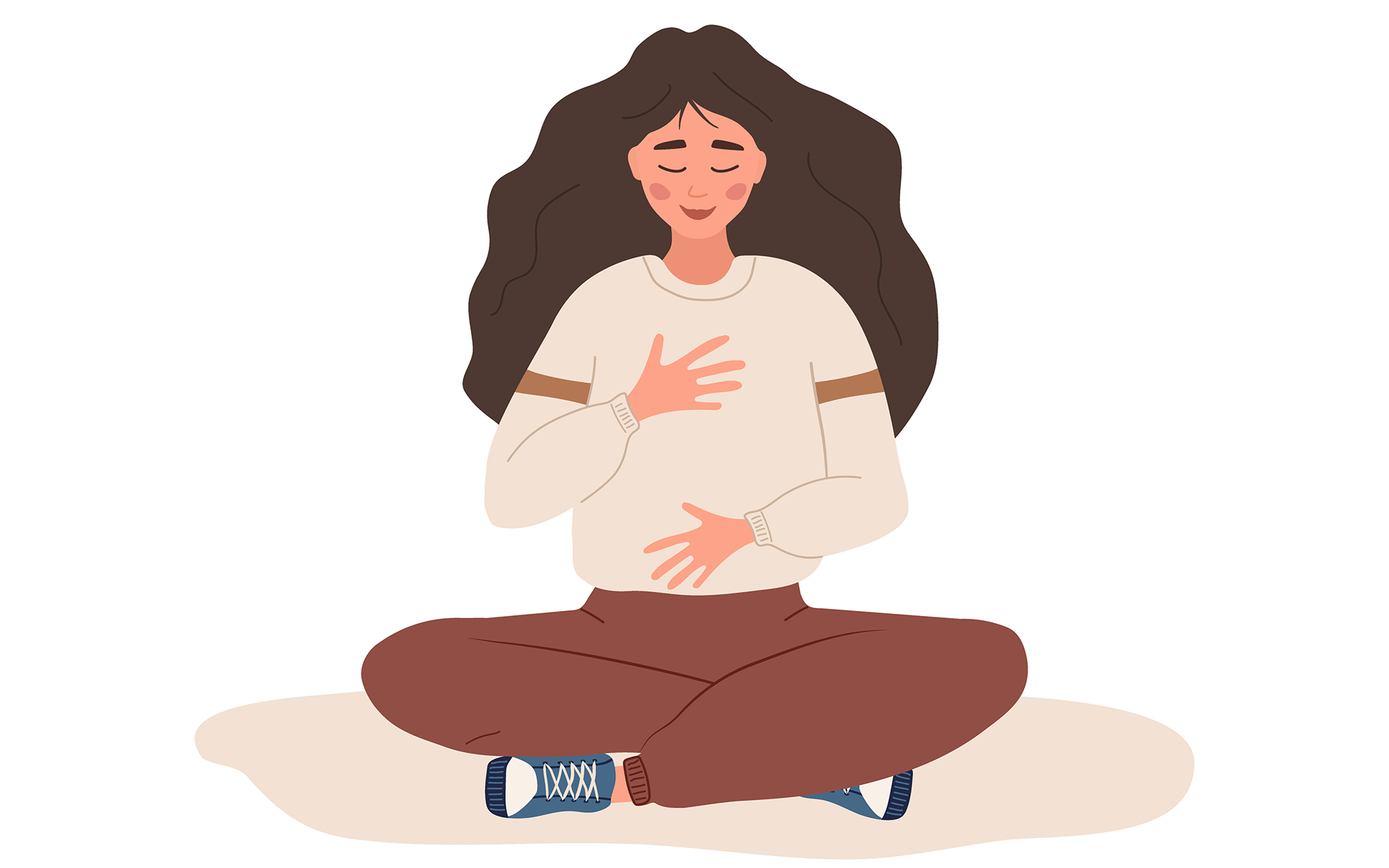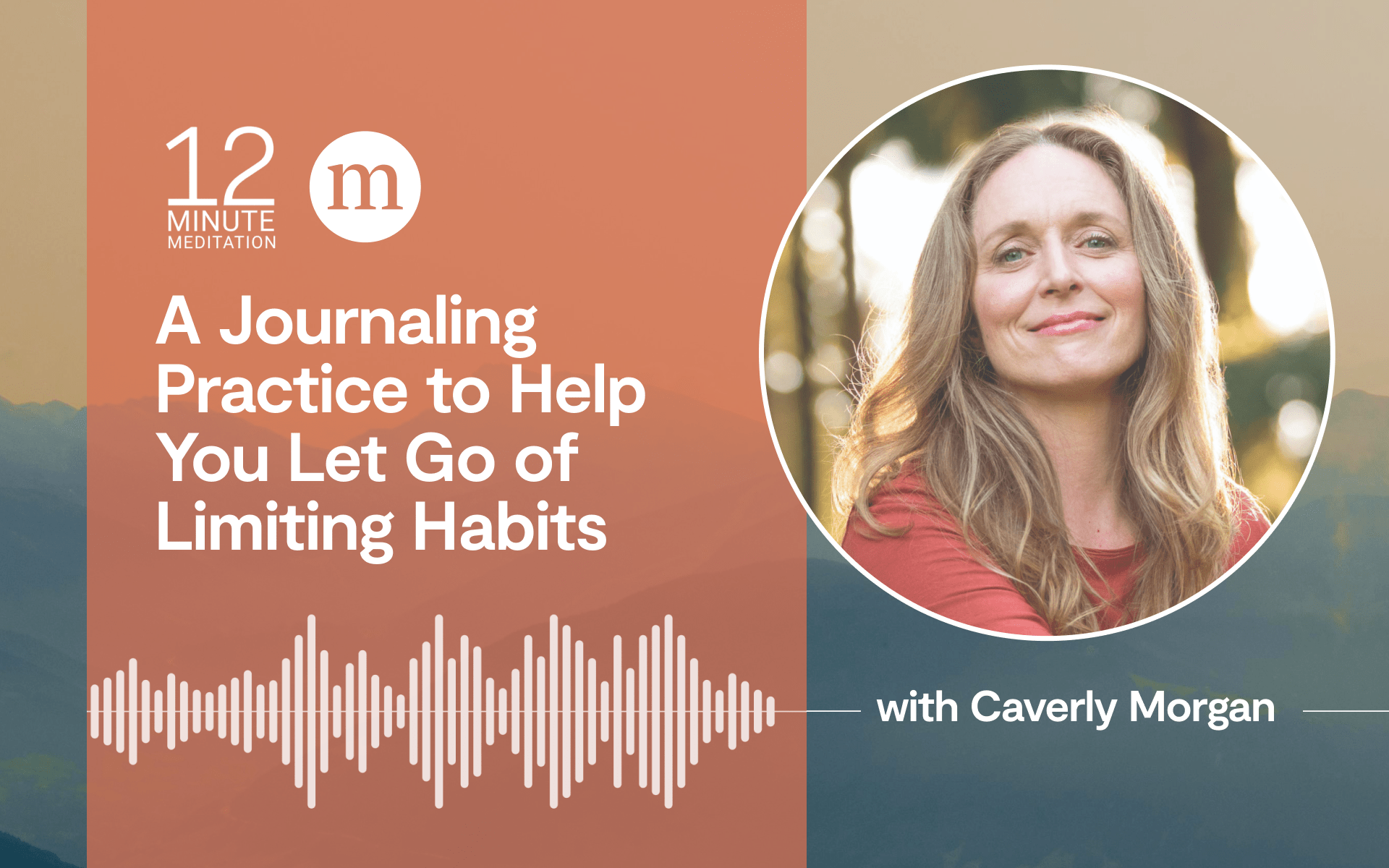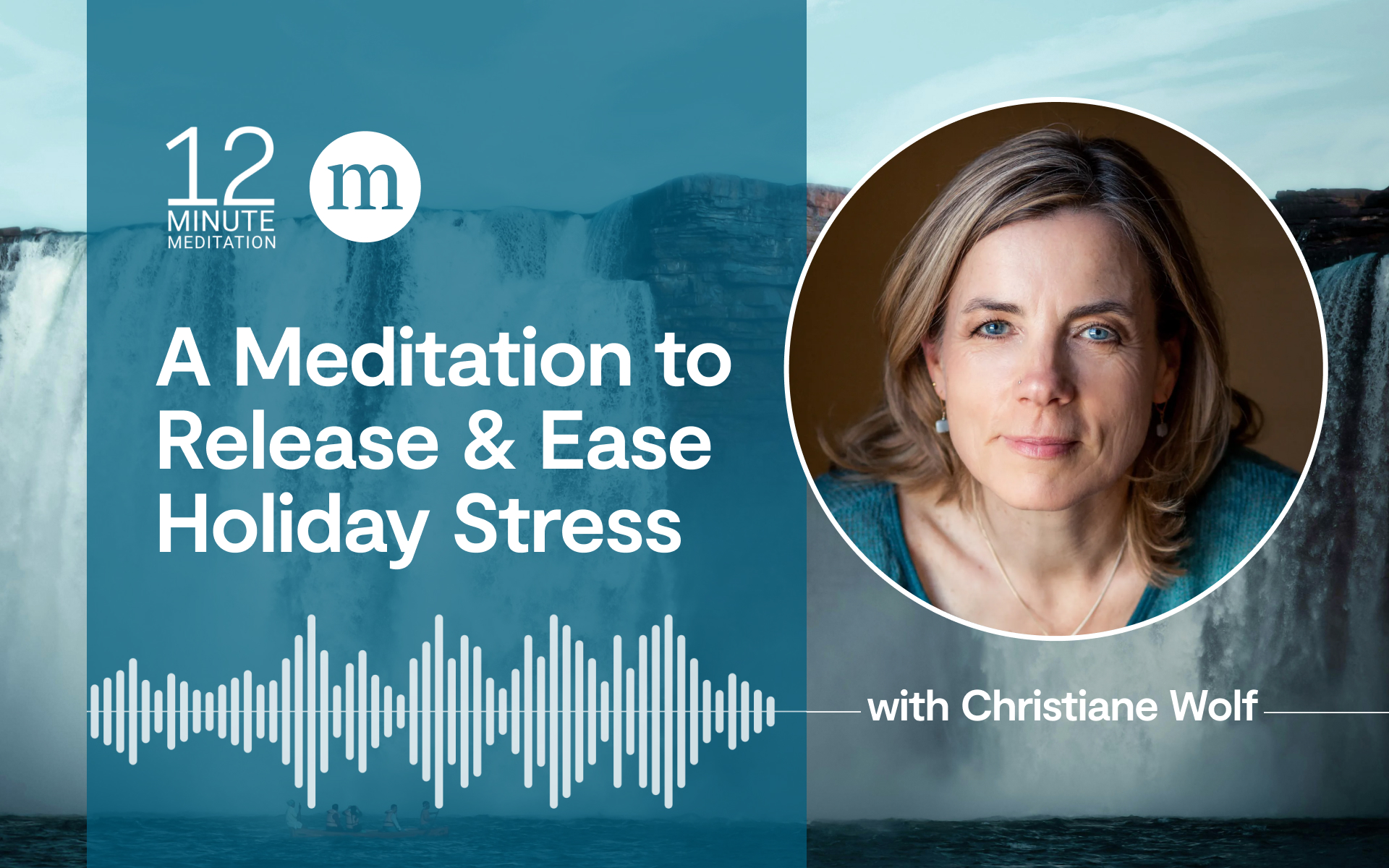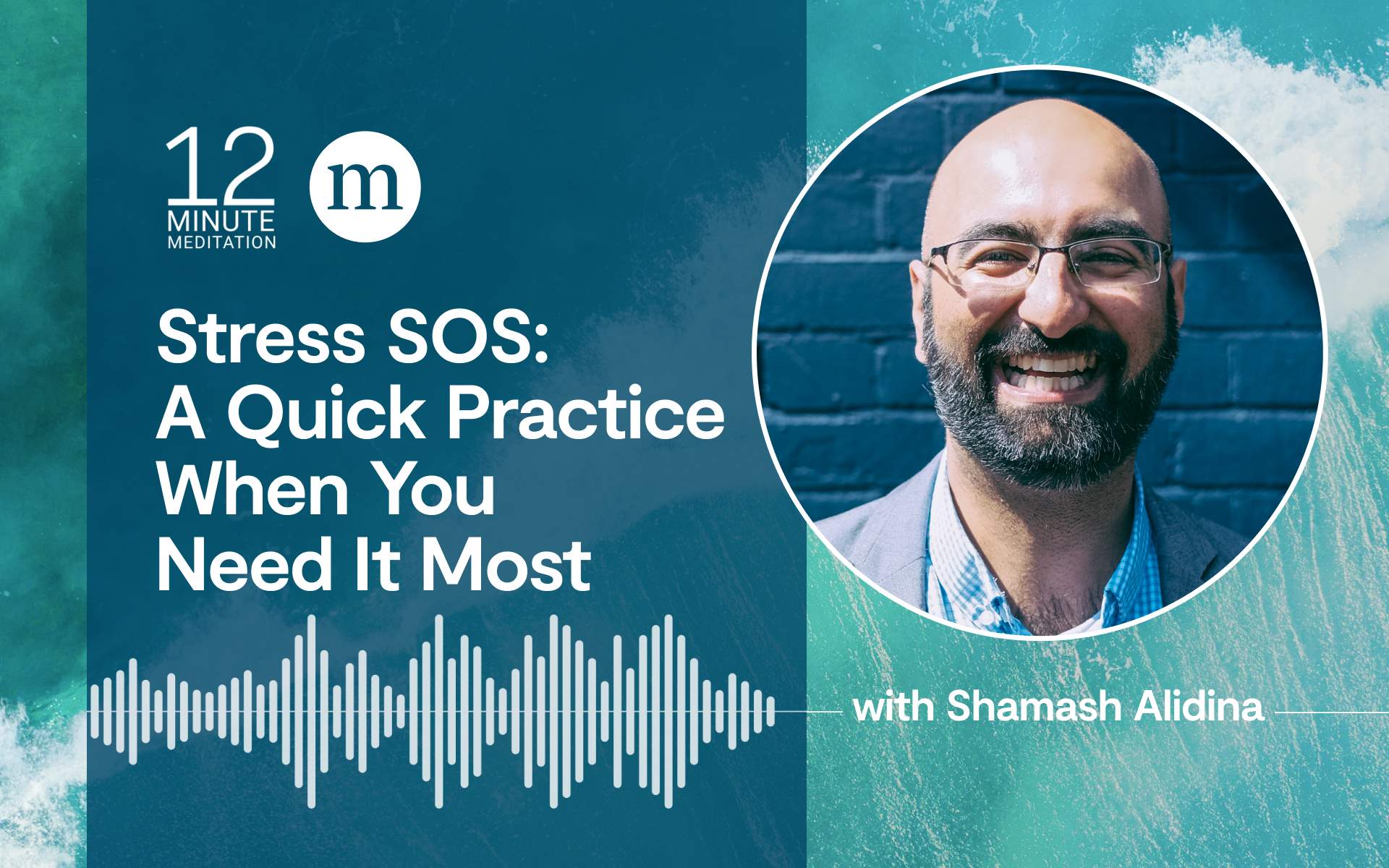This is a short check-in self-regulation practice known as HALT. This is one that’s been floating around self-help circles for many years. What we want to do is basically check in with a few of our basic needs and emotional state—to uncover what your body needs.
What Does HALT Stand For?
In a nutshell, H beacons for asking ourselves: Am I hungry right now? A means checking in to see: Am I angry or anxious, or otherwise dysregulated and activated? L stands for lonely: Am I feeling lonely in this moment? And T stands for: Am I tired?
Tune In to What Your Body Needs with the HALT Practice
A 12-Minute Practice to Tune In to What Your Body Needs
- Find a comfortable posture. If it works for you, you can simply allow your eyes to close, or leave them open and gently gaze downward.
- H: Check in with your body for any signals related to hunger. Are you hungry in this moment? How do you know? Do you feel it in your belly? Do you feel your energy down? Do you feel that “hangry” grumpiness coming on that some of us are familiar with? Just checking in with what your body and mind might be telling you about hunger. Your brain really needs a lot of fuel, a lot of energy, especially for impulse control and emotion regulation. So giving yourself the nutrition and calories that you need physically in terms of sustenance, it’s going to help you make good decisions and more effectively regulate those emotions. If there is some bit of craving, see if you can respond rather than react to it. Maybe you can plan a healthy meal that will satisfy you both physically and emotionally.
- A: Are you activated with the A of either anger or anxiety? These can be related to our fight-or-flight responses. When we’re in anger or anxiety or more primitive parts of our brain and nervous system, when we’re activated, we can’t regulate our emotions quite so effectively. We can’t think and reason things through considering the long-term consequences of our actions. How does your body tell you that you’re angry or anxious? Where in your body and your mind are you aware of it? And then making a choice for regulating and calming your body. Perhaps taking a few breaths, extending that exhale out. Perhaps grounding yourself by pressing your feet into the ground or taking a look around you. See the shapes and colors in the room. You might tense and release your muscles—whatever helps settle your nervous system, so it’s a little bit less activated and on guard.
- L: Are you feeling a sense of loneliness, that need for connection? Healthy regulation for so many humans actually starts with co-regulation with others. Our collective nervous system can ramp us up or can settle us back down. Interacting with others is almost like medicine that we need sometimes. And we know that social contact starts to build better regulation skills, boost happiness, regulate our mood, and help us take more effective perspective on the situations that are challenging us at any given moment. Checking in: Are you feeling lonely or are you feeling connected? And if there is some loneliness or longing, what simple action can you do? Can you reach out, text a friend, recall a moment of recent connection with others, or find some other way to contact someone supportive?
- And lastly, T. Are you tired? Again, our brains don’t function all that well when we’re tired, whether it’s because we didn’t get sleep or whether it’s we’re overworking and we’ve reached the end of a long, busy, frustrating day. Our ability to regulate our attention, even our willpower, starts to slip away. We lose cognitive capacity. We all feel not-so-sharp when we’re tired. Maybe right now is not the moment to take a nap, but can you give yourself perhaps a bit of rest? Can you find a way to put into your schedule in the coming hours or days a bit more time to yourself to rest and recharge? Or you might find a way to give yourself a little bit more sleep at night.
When you find yourself a bit dysregulated or overwhelmed, a few of these simple interventions can help. Asking yourself, “Am I hungry, angry, anxious or otherwise activated? Am I lonely, can I reach out? Am I tired, can I give myself some rest or a break? Do something restorative for my energy?” We can much more effectively manage whatever difficulties may arise over the course of a challenging day and weeks ahead.
read more
The Top 10 Guided Meditations of 2022
To help you deepen your mindfulness practice (or get started), we’ve rounded up a list of guided meditations that have resonated most with our readers over the past year. Read More
A Journaling Practice to Help You Let Go of Limiting Habits
Instead of judging yourself for what you want or what you’re feeling, explore these writing prompts to help you turn toward your experience with greater understanding and self-compassion. Read More
Creating Space for Relief When You’re Teetering on the Edge of Burnout
Burnout isn’t an individual problem, it’s a collective challenge and a byproduct of unkind systems in our world. The good news is that these systems were created by people, which means they can be updated. Read More











